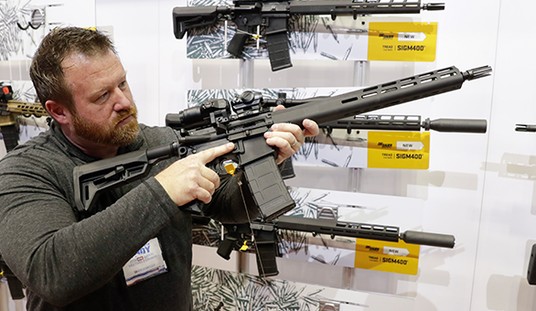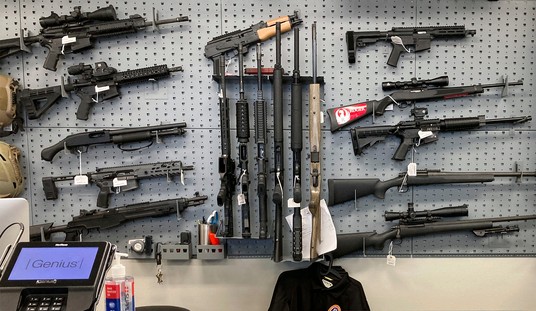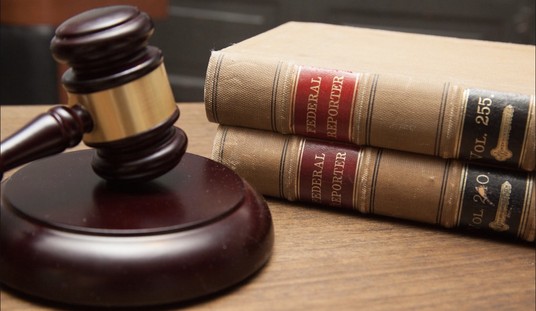
After being injured on his second tour of duty in Afghanistan, Lt. Augustine Kim spent the night in a D.C. jail for possessing unregistered guns.
Mr. Kim was transporting his firearms from his parents’ house in New Jersey to South Carolina when he stopped at Walter Reed in Washington for a medical appointment in the summer of 2010.
After being pulled over, handcuffed, arrested, thrown in jail overnight, his guns were confiscated by the city.
In the end, the platoon leader felt forced to plead guilty to a misdemeanor charge, which was later dismissed, but the District still refuses to return to him $10,000 worth of firearms and parts. The national guardsman will deploy to Kosovo this summer. The city should return his property before he leaves to serve our nation overseas for the third time.
Wounded Vet
Mr. Kim, an M1A1 Abrams main battle tank platoon leader, was the liaison officer to a specialized unit in Afghanistan, when he was injured in a vehicle crash. He broke multiple bones on the left side of his face and shattered his right arm. He was medivaced to Germany, where he spent two weeks getting treatment. He then spent three months in and out of the hospital at Walter Reed to get necessary facial surgery to fix his cracked lower orbit.
Before deploying, the soldier had taken his gun collection to his parents’ house in New Jersey for safe storage. At the end of his recovery, he drove to the Garden State to pick up the supply and transport it to his home in Charleston.
He had one Colt Carbine AR15 rifle 6920 5.56/.223, a Beretta 92S in 9mm, a custom Springfield Armory 1911 in .45 caliber. The national guardsman’s hobby is building and working on 1911 models, so he had spare parts, including a frame, barrel and upper receiver.
Arrested Driving Through D.C.
Returning to South Carolina on June 30, 2010, Mr. Kim stopped at Walter Reed for a doctor’s appointment. Afterwards, he got lost while driving his two-door Honda Civic in downtown D.C. in the evening. He was pulled over by police.
The officer said that his driver’s license had been suspended. He was unaware of this. He found out the next morning that it was wrongly suspended due to a clerical error in which North Carolina incorrectly reported to South Carolina that he didn’t pay a speeding ticket. Mr. Kim called and had this cleared up the next morning.
gun1However, because of the suspended license, the D.C. police officer called for backup, and told Mr. Kim he would have to go to the police station. Then the cops asked Mr. Kim if they could search his vehicle. The lieutenant agreed because his guns were properly locked in a case in the trunk, in compliance with federal firearm transport laws. Mr. Kim was handcuffed and told to sit on the curb during the search.
He recalled that the officers inspected the collection and “were upset about the fact that I had the AR-15, which D.C. considers to be an ‘assault weapon.’” The model of rifle is illegal in the District, but not in his home state.
The officers then told Mr. Kim he was in violation for the carrying firearms outside the home (in his vehicle) in the District. The nation’s capital does not acknowledge the right to bear arms, so there are no carry rights.
“I told them I had been under the impression that as long as the guns were locked in the back, with the ammunition separate, that I was allowed to transport them,” Mr. Kim told me in an interview. “They said, ‘That may be true, however, since you stopped at Walter Reed, that make you in violation of the registration laws.” It is illegal to possess a firearm anywhere in D.C. other than the home.
Mr. Kim’s attorney, Richard Gardiner, said his client was lawfully transporting the firearms, and that would have been his defense if the matter went to trial. “The mistake he made was agreeing to a search of his vehicle,” the attorney explained in an interview. “If the police ask for consent to search, the answer is ‘no.’ If they ask, ‘why not?’ The answer is, ‘no.’”
Jail Time
After loading the gun cases into the squad car to be used as evidence, the police took Mr. Kim to police headquarters. He was booked on four felony counts of carrying outside the home. The maximum penalty for all these charges would be a $20,000 fine and 20 years imprisonment.
The veteran spent a “few hours in the drunk tank,” then was moved to the central jail. It was cold on the steel slab, so he asked the police guard for a blanket. “He was surly with me and sarcastic. He said, ‘Oh you want blankets? Well they’re back ordered,’” Mr. Kim recalled. “I remember thinking, we treated detainees in Afghanistan better than this.” He didn’t get much sleep that night.
In the morning, the national guardsman was given a public defender and taken to arraignment. He called his squad leader at Walter Reed to pick him up and get his car.
Once back at the army base, he quickly resolved the driver’s license problem. He then went to the JAG office for legal advice. “I knew if I got one felony, my military career would be over,” Mr. Kim told me. Since the case was in civil court, the military officer couldn’t help him with the charges.
Mr. Kim was more concerned about his career. “I asked him for his opinion on how this would affect my getting subsequent security clearance,” he recalled. “The JAG eased his concerns: ‘You got arrested for carrying guns. That’s what you get paid for.’”
So Mr. Kim went online to find a firearms’ attorney in the area. He asked for recommendations on the gun forum AR15.com and was quickly referred to Mr. Gardiner. “The posters said, ‘Don’t accept anyone else,” Mr. Kim recalled. “I didn’t know he was part of the Heller case.” The lawyer represents Dick Heller in his second lawsuit against the District for its unconstitutional firearms laws.
Read the rest of the article at The Washington Times online.








Join the conversation as a VIP Member